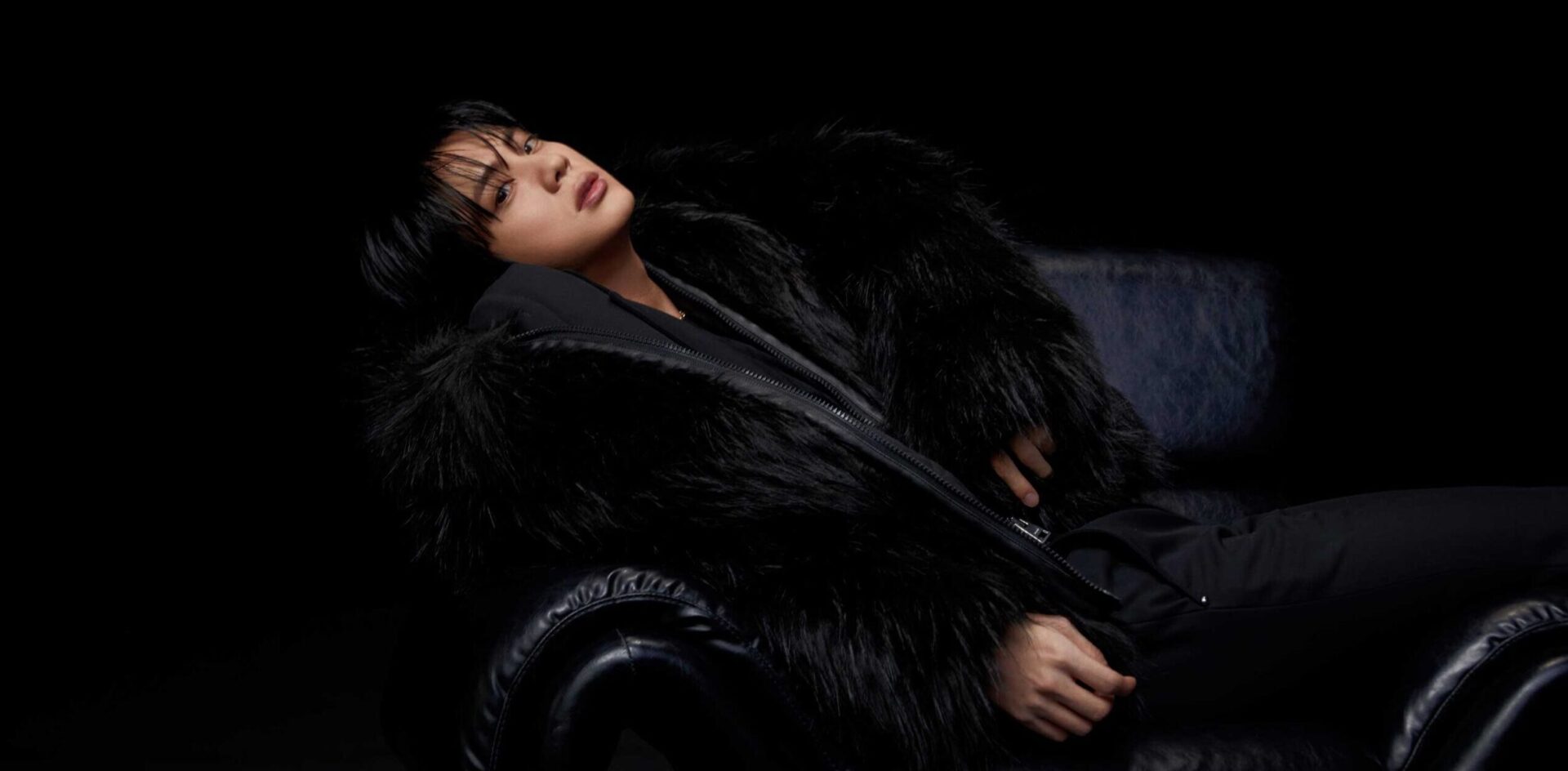Background
This song has grown on me throughout the week, as I kept returning to the Echo album. From the very first notes, this ballad—the genre most attuned to Jin’s voice—captivates me, as if it had been crafted for his unique timbre and emotional range. His melody begins in a low register and then soars, showcasing his vocal prowess and threading together longing: for the stage, for ARMY, for what was left behind.
Two of the BTS members have already completed their military service, and the remaining five will all be discharged next month. Hence there’s little need to dwell on this further, but I have always believed they deserved exemptions. In a country where consensus is as rare as snow in midsummer, Koreans—men and women, young and old, liberal and conservative—agreed that granting BTS military waivers would have served Korea’s best interests.
It was the newly elected conservative government in 2022 that refused to do what was right. Had Moon Jae-in—the liberal president who accompanied BTS to Paris and New York—remained in office, or had a candidate from his party won the 2022 presidential election, the outcome might have been very different. (on a side note, the candidate from the Democratic party, the same party as Moon Jae-in, is heavily favored to win the election on June 3rd. What a perfect time for BTS to start their new chapter!)
My primary concern regarding their military service was always for their physical well-being. Most Korean military bases are secluded in the northern mountains, where winters wield a bitter, unrelenting cold. And each year, tragic accidents and, at times, psychological breaks occur, sometimes resulting in loss of life. I recall a harrowing incident in 2005, when a young soldier lost his grip on reality, stole a gun, bullets, and grenades, and attacked his fellow soldiers, killing eight and injuring others. Such stories—and the knowledge that exemptions so often go to the wealthy, the powerful, medal-winning athletes, and classical music prodigies—haunt every parent. Despite bringing in more global recognition and revenue than all Korean athletes combined, BTS was not granted such privilege.
Yet, what pains me most is that BTS, at the height of their popularity and artistic creativity, were compelled to forfeit nearly two years to a service that is mind-numbingly tedious and repetitive. Korean military life, with its rigid schedules and communal living, leaves little time for individual growth or creative pursuit.
Why am I revisiting this bitter subject? As I listened to “Background,” Jin’s wistful ballad, I couldn’t help but sense that he was singing out his longing for the stage and for ARMY, while also recognizing ARMY’s longing for him and for his presence on stage. Though Jin did not contribute as a lyricist for this song, it’s clear that those who wrote it deeply considered his sentiments, perhaps relayed to them by Jin.
The song opens with the lines, “아직 난 거기 살아 너의 세상이 다 나였던 계절에” (“I’m still stuck there: the time when your whole world was occupied by me”), evoking a sense of suspended time, as if Jin’s heart still lingers in the moments when his music was met with ARMY’s cheers beneath the stage lights. Although the literal translation of “세상이 다 나였던 계절에” is “the season when your whole world was occupied by me,” what Jin is truly expressing is not simply a time when he stood at the center. Rather, he is recalling a period when he was enveloped in ARMY’s love. So, while the words might sound as though Jin is putting himself as the main character, in truth, he is continually speaking to and about ARMY, reflecting on the time when their love surrounded him.
Also, the word “계절” (geh-juhl) (season) carries a poetic resonance in Korean. Instead of the literal meaning, “season” is often used in literature to evoke a cherished time or period. Rather than using 시간 (sih-gahn) (time) or 순간 (soon-gahn) (moment), writers favor the more evocative “계절” to express a time that holds deep meaning in the heart.
As I noted, the Korean military service by its nature is a withdrawal. The vibrant world of performance—alive with color, sound, and connection—shrinks to one of routine and solitude. Jin, once the center of a stage surrounded by millions of love, is suddenly left with only his own, echoing in silence: “나 홀로 되뇌는 말 다시 돌아간다면 무슨 말을 할까” (“I repeat these words in silence: If I return, what would I say?”). This is not a rhetorical question, but an ongoing dialogue with the self, a longing for moments that now live only in memory.
Another poignant line, “널 불러도 다시 메아리처럼 울려, 날 해쳐” (“Even when I call out to you, it only returns as an echo, wounding me”), powerfully captures the sense of separation. Jin’s call to ARMY, to the music, to the belonging that once defined his life, travels no further than memory’s edge. The echo itself becomes a wound.
This ache intensifies in my favorite verse:
“별 하나 없는 이 까만 밤
불 꺼진 무대 위로
늦은 잔상처럼 남아
아직 헤매고 있어”
(“On this dark, starless night,
after the lights go out,
I remain on the empty stage,
a faint afterimage, still seeking you.”)
Here, Jin’s yearning for the stage meets our yearning for his return. The stage, once a place of unity, becomes a place of memory. The afterimage is not just Jin’s, but ARMY’s too, a collective longing suspended in time. I think this verse, specifically with its mention of “stage,” confirmed for me that “Background” was indeed intended for ARMY.
The song closes in a mood of wistful longing and gentle promise:
“Maybe in another place, another time
되돌릴 수 있다면
그땐 곁에 내가 있을까
널 기다리는 나
I’ll be here in the background”
(Maybe in another place, another time—
If I could restore it,
would I be there with you then?
I wait for you;
I’ll be here in the background.”)
Jin wonders whether ARMY will be with him when he returns to ARMY, as he remains waiting for them “in the background.”
This song has grown on me throughout the week, as I kept returning to the Echo album. From the very first notes, this ballad—the genre most attuned to Jin’s voice—captivates me, as if it had been crafted for his unique timbre and emotional range. His melody begins in a low register and then soars, showcasing his vocal prowess and threading together longing: for the stage, for ARMY, for what was left behind.
Lyrics:
Verse 1:
I’m still stuck there—
the time when your whole world was occupied by me.
I repeat these words in silence:
If I return, what would I say?
Even when I call out to you,
it only returns as an echo, wounding me.
Even my waiting—
that is love, I emphasize.
Chorus:
On this dark, starless night,
after the lights go out,
I remain on the empty stage,
a faint afterimage, still seeking you.
Maybe in another place, another time—
if I could restore it,
would I be there with you then?
I wait for you;
I’ll be here in the background.
Verse 2:
Though we drew with different hues,
they colored each other, blending into a dream
The thought of fading from memory—
it’s driving me to madness at times,
but I still choose you.
All my traces, to you,
is a thing of the past, all in tatters.
Even my waiting—
that is love, so I can endure it.
Chorus:
On this dark, starless night,
after the lights go out,
I remain on the empty stage,
a faint afterimage, still seeking you.
Maybe in another place, another time—
if I could restore it,
would I be there with you then?
I wait for you;
I’ll be here in the background.
Here in the background
Chorus:
On a night our stories fall silent,
after the lights go out,
I remain on the empty stage,
a faint afterimage, still seeking you.
Maybe in another place, another time—
if I could restore it,
would I be there with you then?
I wait for you;
I’ll be here in the background.

